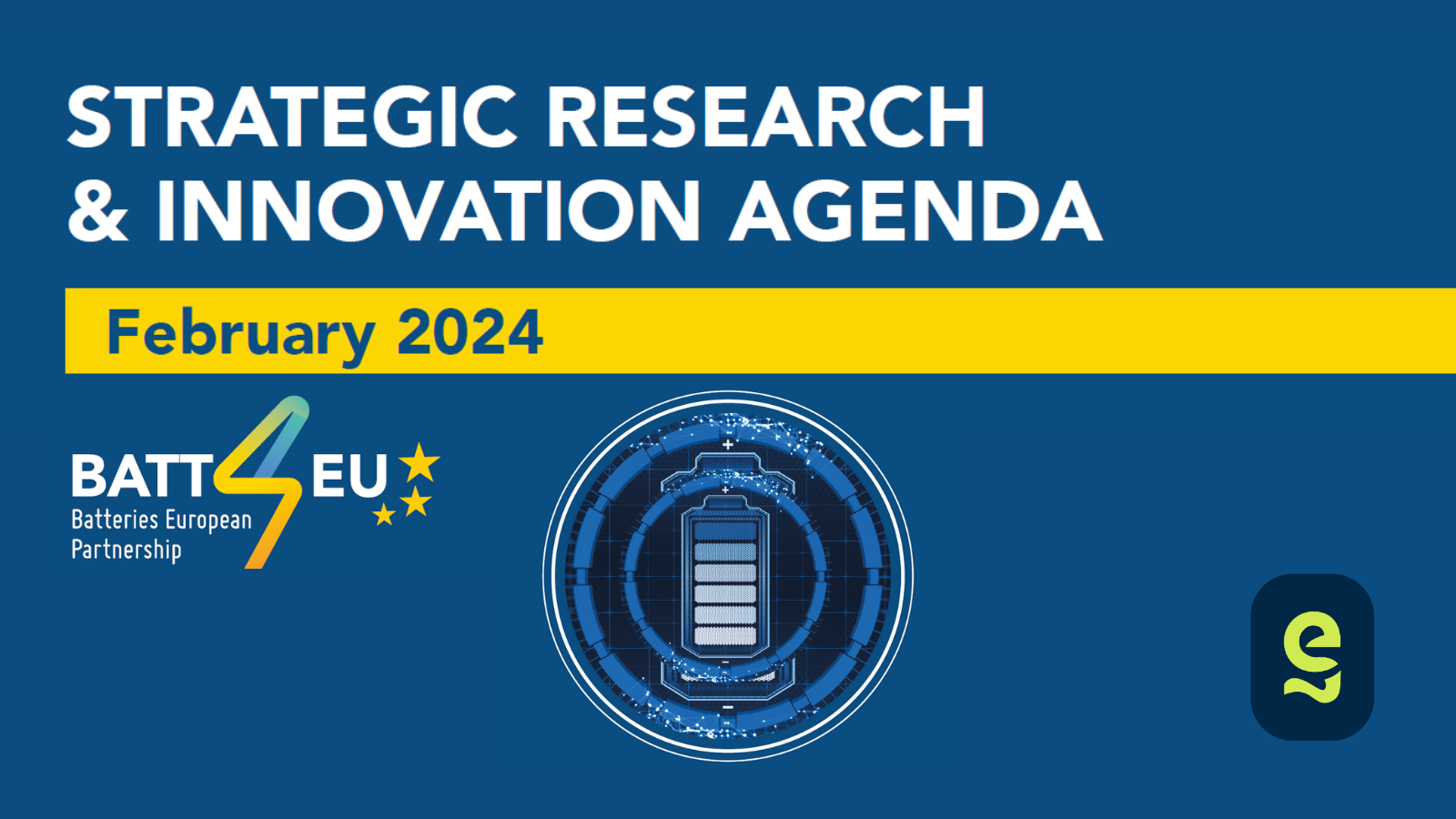The European battery landscape is evolving rapidly, driven by ambitious goals for sustainable and competitive future. Recently, BatteriesEurope and BEPA unveiled the updated Strategic Research and Innovation Agenda (SRIA) on February 15th, outlining key imperatives to bolster the European battery sector’s competitiveness and sustainability.
Through this article, we will delve into the highlights of this pivotal document and its implications for the ENERGETIC project.
Vision for Europe’s battery ecosystem
At the core of the SRIA is the vision to establish Europe as the world’s premier innovation hub for batteries by 2030. This entails fostering a robust, circular, and sustainable battery value chain that supports the transition to a carbon-neutral society. With a focus on commercialising next-generation battery technologies, the SRIA aims to drive zero-emission mobility and renewable energy storage, aligning with the objectives set by the European Commission.
Key imperatives of SRIA 2024
The SRIA 2024 outlines six imperative actions crucial for advancing the European battery sector:
- Facilitating market adoption. Ensuring research results reach giga-factories and markets through pilots, demonstrators, and enhanced decision-making aided by digital tools.
- Enhancing strategic autonomy. Reducing reliance on foreign critical raw materials by supporting local and circular supply chains and exploring diverse battery chemistries, including sodium-ion technologies.
- Improving affordability. Accelerating the green transition by enhancing battery affordability through materials based on abundant resources and better integration into end-use applications.
- Enhancing manufacturing flexibility. Building adaptable battery manufacturing and recycling systems to respond swiftly to industry changes and reduce lock-in effects.
- Promoting safety and sustainability. Implement a safe and sustainable battery framework to reduce emissions, enhance safety, and integrate smart functionalities.
- Supporting research excellence. Ensuring continuity of excellent European battery research by improving access to facilities, fostering academic-industrial cooperation, and sustaining funding for talent retention.
Implications for ENERGETIC
As a project under the European Union’s HORIZON program, Energetic is poised to revolutionise battery management. By developing advanced Battery Management Systems (BMS), Energetic aims to optimise battery utilisation in transportation and stationary applications. Leveraging AI models and cutting-edge sensing technologies, the project seeks to enhance reliability, power, and safety in battery operations.
The project, with its consortium comprising several partners from different countries, embodies the collaborative spirit necessary to realise the goals outlined in the updated SRIA. The inclusion of ENERGETIC within the SRIA by BATT4EU underscores the project’s significance in advancing Europe’s battery innovation ecosystem. Specifically, Energetic’s focus on developing a next-generation BMS based on data-rich digital twins resonates with the SRIA’s emphasis on leveraging physics and data-based approaches for optimised battery utilisation. The project stands as a tangible manifestation of the collaborative efforts envisioned by the SRIA to propel Europe towards a more competitive, sustainable and circular battery value chain.
Moreover, Energetic’s inclusion within the SRIA not only validates its strategic relevance but also positions it as a key contributor to realising the objectives outlined by the European Commission and the broader batter R&I community.
Conclusion
The updated SRIA by BATT4EU sets a clear roadmap for European battery research and innovation, aligning with the sustainability and competitiveness goals. As projects like Energetic push the boundaries of battery technology, collaboration, strategic alignment, and sustained funding will be critical to realise Europe’s vision of a vibrant and sustainable battery ecosystem.
With Europe at a crossroads in its journey toward establishing a competitive battery value chain, the SRIA 2024 provides a timely guide for navigating the challenges and opportunities ahead. By prioritising research excellence, market adoption, strategic autonomy, affordability, safety, and sustainability, Europe can cement its position as a global leader in battery innovation, driving the transition toward a greener and more sustainable future.
Read and download the full Strategic Research and Innovation Agenda here.
